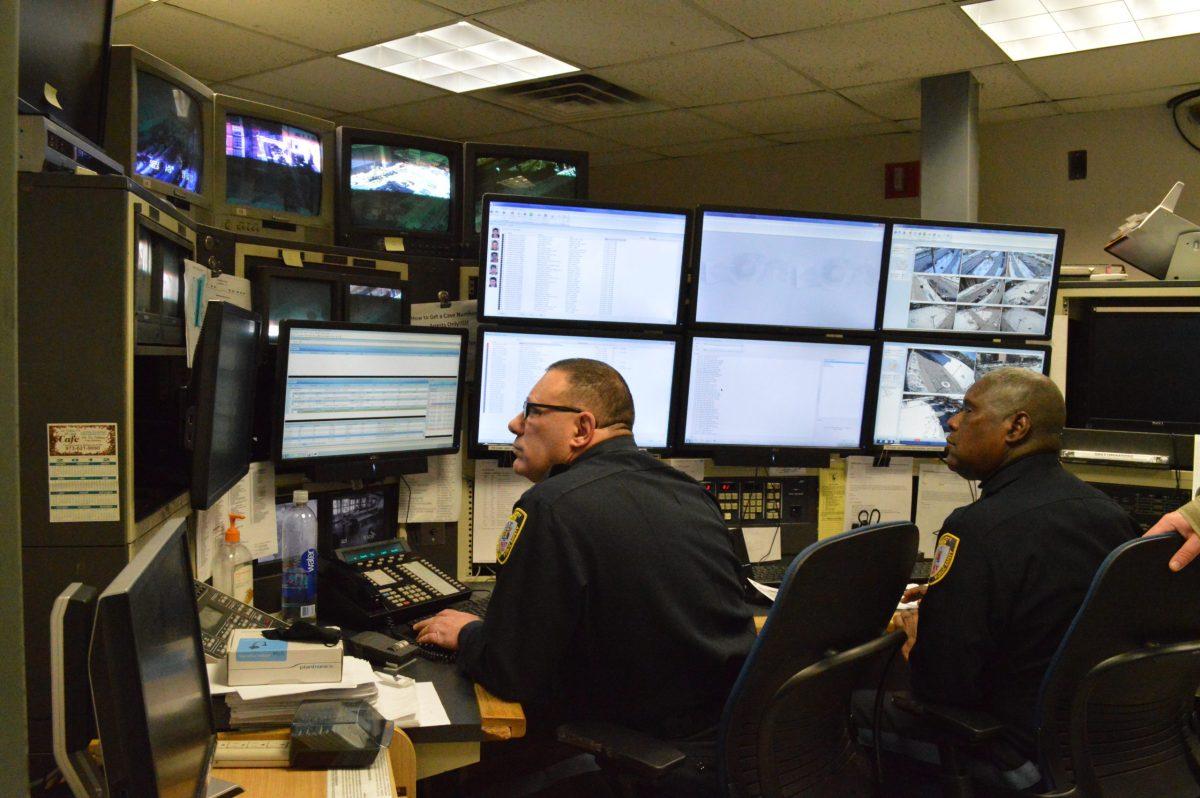Being in Newark, many students, parents, and workers question the safety of our college. Luckily for us, we have NJIT’s Public Safety Department to keep us secure from possible crimes happening on campus. The security system on our campus is what mediates a constant peace within our community and allows us to walk worry-free, with our heads high.
Lieutenant Kevin and Sergeant Garcia gave us a tour of how Public Safety watches over our campus. The central point of their security operations is the central terminal. The terminal holds a wide range of security devices, ranging from the security cameras to the Computer-Aided Dispatcher (CAD) to the Report Management System (RMS).
The security cameras around campus are watched by dispatchers from the central terminal. If suspicious activity or crimes occur, the dispatchers notify officers of the activity nearby so they can patrol the area and assess the situation. Radio communications help keep constant updates between the station and officers. When any event happens, the police use a chain of command structure, much like the military does. The report goes from the dispatchers, to the Public Safety officers, to the sergeant, and so on. With this, all the security personnel on our campus are notified of any occurrence.
The CAD system is essentially an organized report holder. Each report that happens on campus gets permanently logged into a field that briefly describes the incident and assigns it a specific number. Depending on the incident and amount of similar incidents, officers become more proactive in areas with higher danger as per reports. The RMS is what maintains all this information to better analyze and investigate incidents. Recurring patterns are investigated to discover suspects of similar incidents with similar details, with intent to track down and possibly arrest them with enough supporting evidence.
Each investigation is carried out differently, no matter how similar one might be to another. The investigative process is tedious. Officers are trained for a couple of weeks on the procedures, use of tools, and photography to properly gather evidence at a crime scene. Compiled evidence is sent to both a lab and the prosecutor’s office. On each report, they obtain background information on the victim. Officers give the victim time for recovery until they are ready to walk through the crime scene to remember any detail of it. Suspects are based on past practices of similar incidents. Public Safety uses the CAD system to narrow down their suspect and also use video surveillance cameras that are scattered everywhere around Newark. Since the cameras are improved and colored, they are able to even get a facial recognition to check any possible suspects during the time of the crime.
Officers have an office of their own, connected to the central terminal, to privately analyze investigations further on their own time. Each case is open until they get a final, proper arrest along with a hearing. These files are pending for information constantly, and can be open for years until they are finally closed. Suspects from each case have their information placed into a national computer that holds criminal details, photos, lost and stolen property, and many other information and tools.
Lost and stolen property can be returned to their owners through the YETI system. Students can enter serial numbers for items they wish to keep track of into the YETI database, in the event that their possessions are lost or stolen. If found, the items will immediately be sent to the police or themselves. At present, the YETI system only has about 689 UCIDs in their system. This is a very small portion compared that to the approximately 10,000 students enrolled in our college. The more people who utilize the YETI system, the safer everyone’s possessions on campus can be. Sign up for the system at http://yeti.njit.edu/. Applying to this system will reassure you that if you ever lose any item of yours, it will be tracked and found for you.
The NJIT Department of Public Safety assures us that we are well protected to the best of their ability. After seeing their hard work and constant surveillance of our campus, you can be relieved knowing that our campus is always alive and well with the top security available.
Erick Allas



























